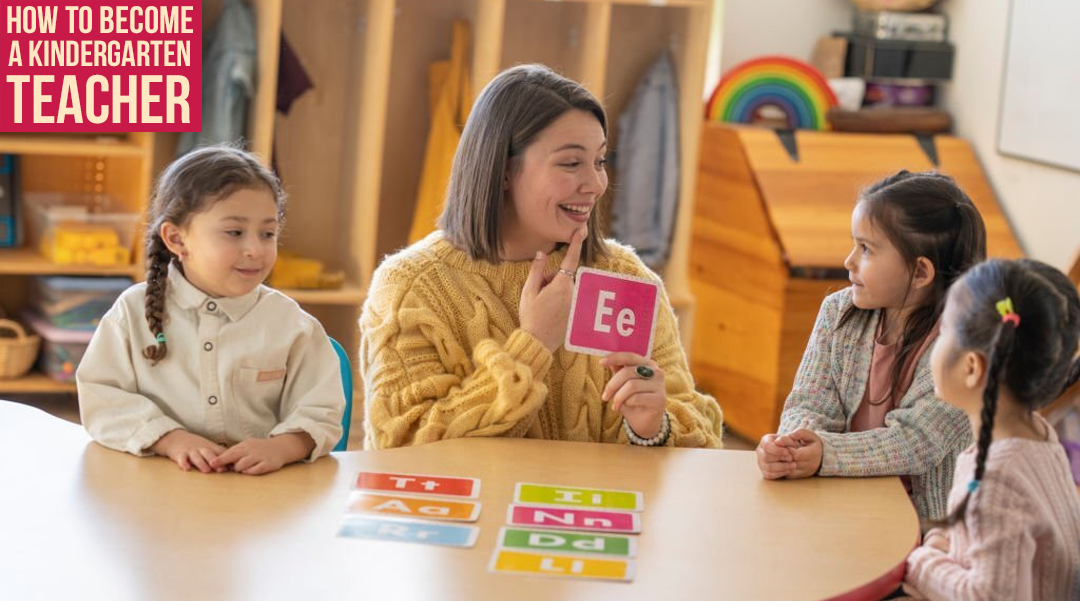Your Cart is Empty
- Ornament 🔥
- Gift for Family 🏠❤️
-
Pet
-
Memorial
-
Products
-
Home & Garden
-
Accessories
- Happy Customers ❤️
Unlocking Success: How to Ask a Teacher for a Letter of Recommendation
September 08, 2023 7 min read

Are you on the verge of applying for college, a scholarship, or that dream job? Picture this: your resume is polished, your grades are impeccable, and your extracurriculars scream dedication. But, there's one missing piece to this puzzle – a glowing letter of recommendation from your teacher. Ah, the dreaded "how to ask a teacher for a letter of recommendation" scenario! Fear not, dear reader, for we are here to unravel this mystique and guide you through this intricate process.
Contents
1. The Power of a Teacher's Recommendation

Before we delve into the nitty-gritty of how to approach your teacher, let's understand why their recommendation is like a golden ticket to your dreams.
Credibility: Teachers are the gatekeepers of your academic journey, possessing a wealth of knowledge and experience. Their endorsement carries tremendous weight and credibility in the eyes of admissions officers or potential employers, like a stamp of excellence on your application.
Insight: They've seen you grow, stumble, and succeed, often better than you've seen yourself. Their recommendation offers unique insights into your character, work ethic, and potential. It's like having a trusted mentor vouch for you, highlighting your strengths in a way that numbers cannot.
Differentiation: In a sea of applicants, a compelling teacher's recommendation can set you apart like a lighthouse guiding a ship through a storm. It's your chance to shine like a supernova in the night sky, catching the attention of those who hold the keys to your future.
Personalization: Unlike a transcript or standardized test score, a letter of recommendation is personal, revealing the human behind the statistics. It adds depth to your application, showcasing who you are beyond numbers and data, painting a vivid portrait of your potential.
In short, a teacher's recommendation is not just a checkbox on your application; it's a powerful tool that can tip the scales in your favor, opening doors to opportunities you've always dreamed of.
2. Choosing the Right Teacher and Building a Relationship

Selecting the right teacher and forging a meaningful connection with them is the cornerstone of successfully securing a compelling letter of recommendation. It's a bit like picking the perfect partner for a dance - the chemistry matters.
Connectivity: Begin by choosing a teacher who knows you well, preferably someone with whom you've had multiple interactions. A teacher who can speak to your growth, both academically and personally, is like finding a rare gem. They should be familiar with your work ethic, character, and aspirations. A teacher who has seen you overcome challenges and consistently strive for excellence is ideal.
Relevance: Consider the relevance of the subject to your future goals. If you're aiming for a science program, it's prudent to approach a science or math teacher rather than someone from an unrelated subject. The relevance of the teacher's expertise can add weight to their recommendation.
Compatibility: In addition to subject matter, ensure your teacher's writing style aligns with the tone you want for your recommendation. You want the letter to sound genuine, reflecting a heartfelt endorsement rather than a generic template.
Building a strong rapport with your chosen teacher is akin to nurturing a plant to blossom beautifully. It's not just about the ask; it's about fostering a connection that makes them genuinely eager to support your journey.
Engagement: Actively engage in your classes. Participate in discussions, ask questions, and demonstrate a genuine interest in the subject matter. Show your teacher that you're not just a passive learner but an enthusiastic participant in the learning process.
Office Hours: Take advantage of your teacher's office hours (or virtual equivalents). Visit them for extra help or simply to discuss your academic progress. These one-on-one interactions provide valuable opportunities for them to get to know you better.
Contribute: Go the extra mile by offering to assist with classroom tasks or volunteering for projects related to their subject. Show your dedication extends beyond the classroom walls. When your teacher sees your commitment, it reinforces their belief in your potential.
By carefully selecting the right teacher and nurturing a meaningful connection, you set the stage for a successful request for a letter of recommendation. It's not just about the letter; it's about the relationship you've cultivated, which makes your teacher genuinely invested in your success.
3. Timing, Asking, and Following Up

Timing, the art of the ask, and graceful follow-ups form a crucial trifecta in the delicate process of requesting a teacher's letter of recommendation. Just like a well-choreographed dance, these elements must harmonize seamlessly to yield the desired result.
Plan Ahead: Initiating this process requires foresight. Begin thinking about it several months before you need the letter. Rushed requests rarely lead to the best outcomes. Creating a timeline that aligns with your application deadlines will help you stay organized.
Consider Deadlines: Be acutely aware of your application deadlines. Your teacher will need ample time to craft a thoughtful recommendation. Waiting until the eleventh hour adds unnecessary stress for both parties.
Avoid Peak Seasons: Timing is not just about the date but also about the context. Avoid asking during exam weeks, grading marathons, or other high-stress periods. Your teacher will appreciate your consideration and receptivity to their workload.
Now comes the pivotal moment - the actual request. Much like proposing a toast, it requires finesse and sincerity.
Be Polite: Approach your teacher with respect and humility. A simple "Would you be willing to write me a letter of recommendation?" is a courteous way to broach the subject. Remember, this is a favor, not an obligation.
Provide Context: Share your goals and aspirations. Explain why their recommendation is crucial for your future plans. Helping your teacher understand the significance of their role in your journey can inspire a more heartfelt response.
Ask in Person: Whenever possible, make the request face-to-face. This personal touch demonstrates your sincerity and allows for immediate discussion and clarification. However, in the era of virtual communication, a well-crafted email or video call can also suffice.
Offer Resources: Be proactive in providing any necessary information that will assist your teacher in crafting an impactful letter. This may include your resume, a summary of your achievements, or key points you'd like them to highlight. The more you can ease their workload, the more willing they'll be to help.
Your request has been made, but the journey is far from over. Following up is as crucial as the initial ask.
Thank You, Again: Express your gratitude for their willingness to help. A heartfelt thank-you note goes a long way in showing your appreciation for their time and effort.
Reminders: Politely remind them of deadlines and any additional details they might need. Remember, they're likely juggling multiple responsibilities, so a gentle nudge can be helpful.
Stay Available: Be readily available to answer questions or provide further information if they request it. Clear communication ensures a smoother process and a well-tailored recommendation.
By mastering the art of timing, making a persuasive request, and following up with grace, you increase your chances of receiving a stellar letter of recommendation from your teacher. It's a dance of consideration, respect, and gratitude that can lead to a harmonious outcome.
4. Crafting the Letter and Expressing Gratitude

Once your teacher agrees to write the letter, the spotlight shifts from requesting to facilitating the creation of a compelling recommendation. Furthermore, expressing heartfelt gratitude is a vital act that closes this chapter on a positive note.
Provide Key Points: While your teacher crafts the letter, offer them essential points to highlight. Remind them of your achievements, the specific class you had together, and any qualities or experiences you'd like them to emphasize. This guidance ensures that the letter aligns with your goals and presents you in the best possible light.
Offer a Resume: Share your updated resume. It serves as a valuable reference and provides your teacher with additional insights into your extracurricular activities, volunteer work, and work experience. A comprehensive resume is akin to handing them a palette of colors to paint your portrait accurately.
Follow Up Politely: As the deadline approaches, send a gentle reminder if you haven't heard any updates. Teachers often have busy schedules, and a friendly nudge can help keep the process on track without being overbearing. Keep lines of communication open to address any last-minute details or questions.
Once you receive that coveted letter, it's imperative to convey your sincere appreciation. It's not just a formality; it's a token of respect and acknowledgment.
Thank You, Again: Send a heartfelt thank-you note to your teacher, expressing your gratitude for their time, effort, and willingness to support your journey. A handwritten note can add a personal touch that digital messages often lack.
Share Outcomes: Keep your teacher in the loop about your progress. They invested their time and belief in your potential, and nothing is more rewarding for them than witnessing your success. Share news of college acceptances, scholarships awarded, or career milestones achieved. It's a way of saying, "You made a difference in my life."
Pay It Forward: When the opportunity arises, consider paying it forward by writing a recommendation for someone else. It's a beautiful way to give back to the educational ecosystem and honor the trust your teacher placed in you. Becoming a recommender yourself completes the cycle of mentorship and support.
Crafting the letter and expressing your gratitude are the final strokes in this collaborative endeavor. By providing guidance and showing appreciation, you ensure that the recommendation reflects your strengths and aspirations while acknowledging the significant role your teacher played in your journey.
5. Conclusion: Unveiling the Road to Success

Asking a teacher for a letter of recommendation need not be a harrowing experience. With the right approach, you can turn it into a valuable opportunity to showcase your qualities and aspirations. Remember, it's not just about getting the letter but also about building meaningful relationships and expressing gratitude. So, go ahead, use these tips, and watch as your academic and professional future takes flight.
In the grand tapestry of your academic and professional journey, securing a teacher's letter of recommendation is akin to finding that elusive treasure chest. By following the strategies outlined in this guide, you'll be well-equipped to navigate this path with confidence and finesse. Remember, it's not merely about obtaining the letter, but also about building relationships, fostering gratitude, and paying it forward. So, embark on this adventure with determination, for it's a journey that can lead you to the bright horizons of your dreams.
Related articles in Teacher

Mastering the Path: How to Become an Elementary School Teacher
September 08, 2023 6 min read
Explore the ultimate guide to becoming an elementary school teacher, from qualifications to practical tips, and embark on a journey to shape young minds.
Read More
 Track Order
Track Order
